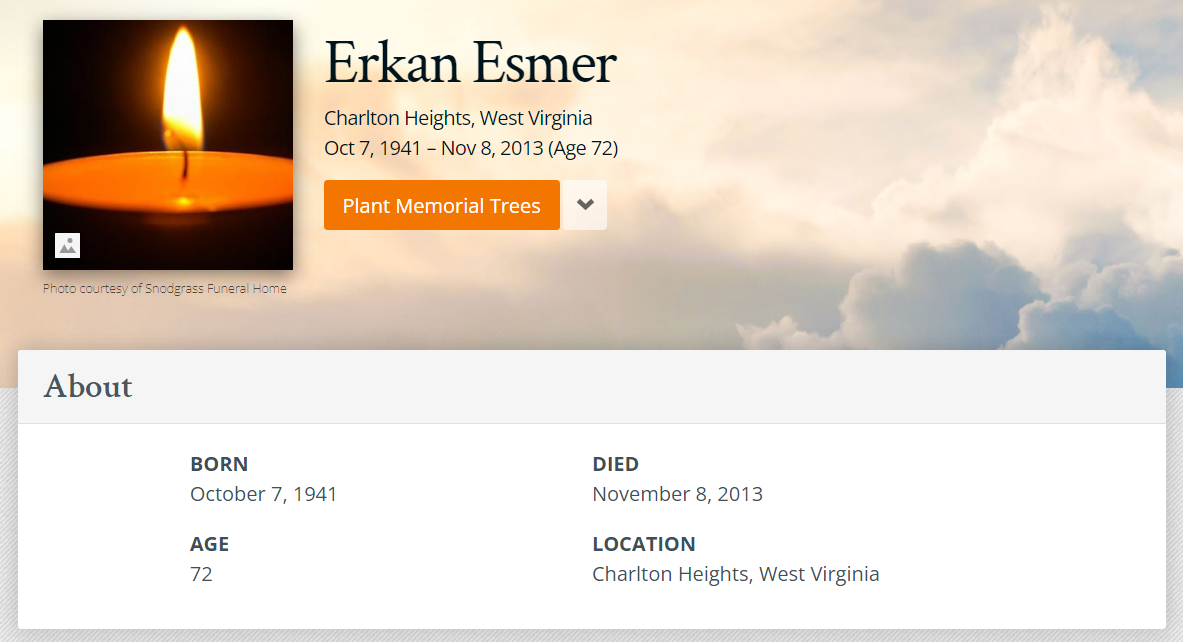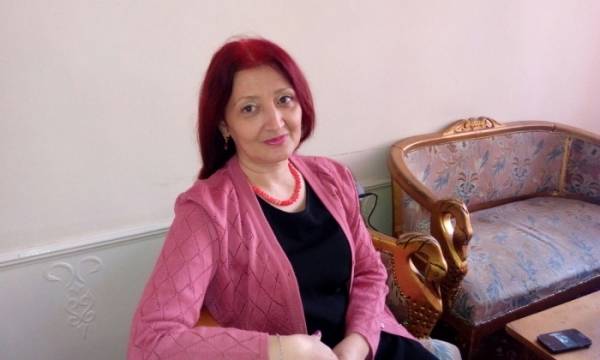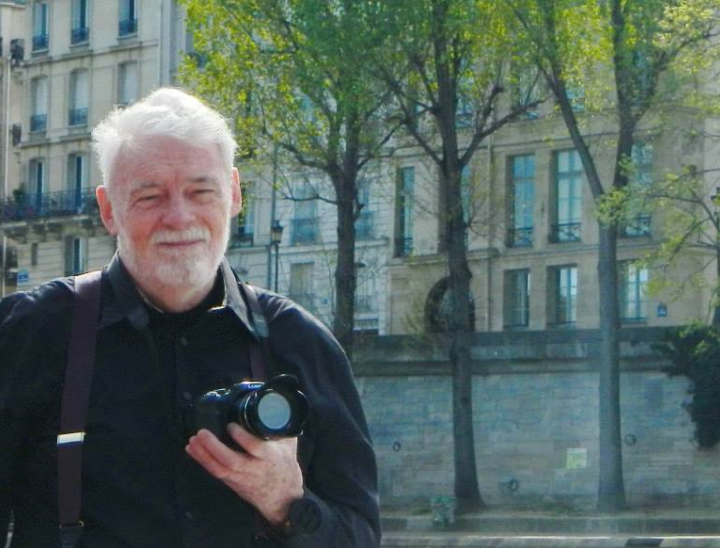Is Fethullah Gulen a dangerous Islamist or a moderate visionary?
His critics perceive Gülen’s benign face as a mask — one disguising an Islamist wolf in a moderate sheep’s clothing. But who is Fethullah Gulen, really?
For more than a decade, one of the world’s most influential and controversial Muslim leaders has been convalescing on 26 acres in the Pocono Mountains.
In Ross Township — not far from the Blue Ridge flea market, a giant corn maze dubbed Mazezilla and a go-kart speedway — you will find a small metal sign bearing the name of the Golden Generation Worship and Retreat Center.
It is here that Fethullah Gülen, 68, lives.
Gülen is an ailing Turkish cleric whose vision of an Islam that embraces science, education and interfaith dialogue has earned him millions of followers — and the suspicion of many in Turkey’s secular establishment.
To his supporters, Gülen is the face of a more contemporary and tolerant Islam.
But his critics perceive Gülen’s benign face as a mask — one disguising an Islamist wolf in a moderate sheep’s clothing.
“To his detractors,” wrote Piotr Zalewski, a journalist who lives in Turkey, “he is the second coming of Ayatollah Khomeini, his avowedly peaceful movement hiding a nefarious secret agenda to transform secular Turkey into another Iran.”
But does Gülen truly pose a threat to national security? And what is so prominent a figure — he was named one of the most influential Muslims alive by the Royal Islamic Strategic Studies Center and the world’s leading public intellectual by the readers of Foreign Policy magazine — doing in northeastern Pennsylvania?
‘Most Dangerous Islamist?’
Gülen’s idyll in the obscurity of the Poconos was shaken by a recent online broadside.
Bearing the headline, “Exclusive: World’s ‘Most Dangerous Islamist’ Alive, Well, and Living in Pennsylvania,” the article alleged several incendiary details about Gülen.
Gülen, warned the writer, Paul Williams, lived in an “Islamic armed fortress” in Saylorsburg, had amassed billions of dollars to foment dissent and topple governments and founded madrasahs worldwide to lay the groundwork for “the Islamization of the world.”
The article, on the website Family Security Matters and on Williams’ blog, The Last Crusade, flew around the Internet, alternately baffling and shocking the center’s neighbors and local officials.
Though it recycled several longstanding controversies about Gülen, many of its fresher claims are false.
For example, the article described visits from the FBI. The bureau had been there, but several residents of the center said it was many years ago, during Gülen’s immigration dispute (after a lawsuit, a federal judge granted Gülen status as an “alien of exceptional ability”). The FBI has not been there in years, according to Special Agent J.J. Klaver.
Williams also quoted unnamed neighbors and business owners complaining of “the incessant sounds of gunfire — including the rat-tat-tat of fully automatic weapons — coming from the compound and the low flying helicopter that circles the area in search of all intruders.”
None of the neighbors with whom the Pocono Record spoke said they had ever heard or seen what Williams described.
Instead, they said they’d shared picnics with the center’s residents, and had received visits from them after the terrorist attacks of Sept. 11, 2001.
The Gülenists had knocked on their doors to apologize for what had been inflicted on innocents in the name of Islam.
“You couldn’t meet a nicer bunch of people,” said Howard Beers Jr., a Ross Township supervisor who lives next door and enters the property six or seven days a week, often unannounced and not through the front gate, to do construction work.
“If anyone would walk in on something, it would be me,” Beers said. “As long as I have ever been there, I have never, ever, seen a gun or heard a shot. All this stuff is totally, totally unfounded.”
Efforts to reach Williams through the Web site and his blog were unsuccessful.
A recent visit to Golden Generation revealed tranquil surroundings — a retreat, not a compound — landscaped with old-growth trees, a pond, basketball court, soccer field and several residences under construction.
Middle-aged, mild-mannered, mustached men in modern dress strolled on the grounds, apart from groups of children and hijab-wearing women.
They bore no weapons — just ornately designed plates and boxes of Turkish desserts, which they offered to American visitors.
“We are the very opposite of what that man says,” said Bekir Aksoy, president of the center.
And yet, Gülen is still seen by some as a threat to the established order of the Muslim world. But it is not quite for the reasons Williams described.
To understand why, the reclusive cleric must be placed in the context of the world’s 1 billion Muslims.
A threat to orthodoxy
“The West looks at Islam and says it’s a monolith,” said Akbar Ahmed, a professor at American University’s School of International Service and author of the book, “Journey into America: The Challenge of Islam,” who is supportive of Gülenism.
But like all large groups of people, Muslims can hold disparate beliefs, observe their faith to different degrees, and embody varying cross-currents and complexities.
In broad terms, a large number of Muslims belong to the literalist camp. It is typified by the Wahhabi sect of the religion and hard-core Islamic governments like Saudi Arabia’s, which recoil from the influence of the West and see the Koran, the Muslim holy book, as the literal truth.
At the other end of the spectrum are secular Muslims, such as the Turkish government, who are suspicious of Islam, and see it as a force to be subordinated to the state or kept to the confines of one’s home.
Between these two poles are other groups, including a small cluster called Sufis, out of whose mystical tradition Gülen arises.
The Gülenist interpretation of Islam publicly preaches the virtues of being outward looking, peaceful and respectful of religious diversity. If Gülenists are known for anything, it is for their abiding faith in inter-religious dialogue.
“The Gülen Institute rigorously and, I think very rightly, advocates prayer and interfaith dialogue and the role that they can play in helping ease tensions between peoples in our very complicated world,” James Baker, the former secretary of state, said to a Houston gathering of the institute in 2008.
They also promote engagement in science and education. While their work has a political aspect — in the sense that many Gülenists are concerned with social justice and communal responsibility — they profess to remain divorced from the hurly-burly of partisan politics.
“Power’s dominance is transitory; while the dominance of truth and justice is eternal,” Gülen wrote. “Sincere politicians should align themselves and their policies with truth and justice.”
Gülenism disturbs both poles of the Islamic spectrum — the secular and the fundamentalist.
“Modern Turkey is self-consciously secular,” said Ahmed. “To them, anyone talking about religion, like Gülen, and appearing to be an attractive and alternative paradigm would be a threat. He would seem to undermine secularism.”
Ahmed put this threat in starker terms when describing Gülen’s effect on the literalist wing of Islam.
“If the Taliban had Gülen and George W. Bush in the same room, they’d go for Gülen first,” said Ahmed. “He’d change their society.”
David Cuthell, executive director of the Institute of Turkish Studies at Georgetown University, went further, saying Gülen was trying to reconcile both poles of thought.
“If there’s going to be a Reformation in Islam,” Cuthell said, “this is where it’s going to be coming from.”
The road to Saylorsburg
Gülen’s popularity in Turkey grew over several decades, through the 1990s. He harnessed the tools of mass communication — television, radio, and now, the Internet — to spread his message of education and engagement, often to well-educated elites, said Muhammed Çetin, a Gülenist, author and sociologist who lives in Wind Gap.
“He was sending people to learn,” Çetin said, “not to be trapped by terrorists and limited views.”
Though his influence grew — he is thought to have more than 5 million followers — television proved to be his undoing. Gülen was quoted as urging his followers to weave themselves into the fabric of the power structure.
“Every method and path is acceptable (including) lying to people,” he allegedly said. Gülen critics have cited these words as evidence that he is orchestrating a shadow conspiracy to seize control and elevate religion.
Gülen has said the footage was manipulated and that he has no political aspirations.
Turkey accused Gülen of attempting to undermine the secular regime. His supporters described it as a trumped-up effort to discredit him. The case has never been proven or disproven.
Tensions mounted. The Welfare Party, which, like Gülen, was pro-religious, held power. But it clashed with Turkey’s military and was dissolved in 1998.
“Gülen felt like if he stuck around he’d end up in jail,” said Cuthell of the Institute of Turkish Studies.
At around the same time, Gülen was in Minnesota being treated for ill health. He suffers from diabetes, heart disease and high blood pressure, said Aksoy, president of Golden Generation. Recently, Gülen’s lungs have begun to fill with fluid.
Golden Generation had already been established in Saylorsburg on the grounds of a former summer camp. Kemal Ozgur, a microbiologist and Gülenist, met Gülen in Minnesota and invited him to stay in Pennsylvania. The cleric has remained there ever since.
Gülen seldom speaks publicly or appears outside his room. He will leave only to visit a group room in a chalet in the center, where he leads prayers five times daily.
“He doesn’t want to be in the limelight, and Pennsylvania works for him quite well,” said Cuthell.
But Gülen’s continued influence is reflected in a decentralized global network of schools, newspapers and think tanks that are supportive of his views.
Those who run the center refer to Gülen as their guest, and say the entrance is monitored to keep Gülen from being flooded by visiting Turks.
“He liked it so much, he never left,” Aksoy said. “It was an accident of history that he came here.”
By Dan Berrett, Pocono Record Writer





